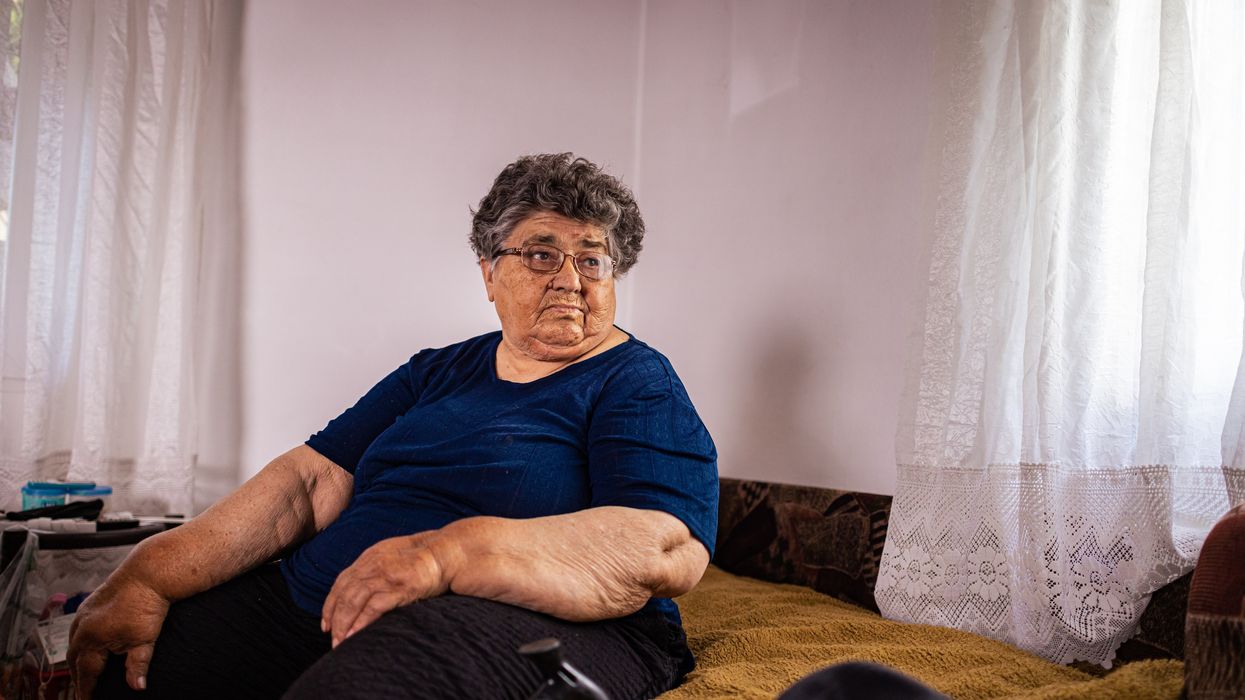Could you be missing out on up to £5,306 designed to help towards ‘staying independent’?

Attendance Allowance could help towards extra costs state pension age people living with a disability face
|GETTY

Attendance Allowance is a state pension age benefit which is intended to help people with the extra costs they may face due to having a disability
Don't Miss
Most Read
Latest
More than one million pensioners could be missing out on £5.2billion of extra support they’re entitled to, which could help them to stay independent, according to new research.
An Attendance Allowance claim is worth up to £5,306 per year, and can open eligibility to additional forms of support, such as a discount on council tax.
A new report, by Policy in Practice in partnership with Money Saving Expert, has found more than 1.1 million pension age households could be missing out on £5.2billion of Attendance Allowance per year.
The support is intended to help state pension age households cope with the additional costs of a disability, with a recent report by Scope finding having a disability costs an extra £1,122 per month on average.

Attendance Allowance could help people to stay independent, according to the charity Age UK
|GETTY
A DWP spokesperson said: “We do not recognise the figure in this report, which the authors themselves state is probably overinflated.
“In the last year, the Allowance has seen £5.8billion help around 1.3 million pensioners to manage their disabilities.”
Caroline Abrahams, Charity Director at Age UK, said: "If you’re an older person who thinks they need some extra help to stay independent it is well worth applying for Attendance Allowance - please don't be put off by the strange name of this very useful benefit, that pays out weekly for those who qualify.
"Attendance Allowance is there to fund some of the extra costs that come along if you are an older person with some disability.
“For example, if you are successful in your claim you could use Attendance Allowance to help with the extra costs of heating that many disabled people face or meet the cost of a taxi to take you to a hospital appointment, or to visit a friend.”
How much is Attendance Allowance?
Attendance Allowance is paid at two different rates, and how much a person gets will depend on the care needed because of the disability.
Crucially, Attendance Allowance isn’t means-tested, so income and savings will not affect how much a person can get.
The lower rate is currently £68.10 per week.
The level of help needed for this rate is described as “frequent help or constant supervision during the day, or supervision at night”.
The higher rate is £101.75 for this tax year.
To qualify for the higher rate, the Government says a person must need: “Help or supervision throughout both day and night, or a medical professional has said you might have 12 months or less to live.”
It might be possible to get extra Pension Credit, Housing Benefit or Council Tax Reduction by claiming Attendance Allowance.
People applying for Attendance Allowance should check this with the helpline or office dealing with the claim.
If a person gets Constant Attendance Allowance at the same time, the Attendance Allowance will be reduced by the amount of Constant Attendance Allowance being paid.
LATEST DEVELOPMENTS:
Who is eligible for Attendance Allowance?
You can get Attendance Allowance if you’ve reached state pension age and the following apply (unless you might have 12 months or less to live):
- You have a physical disability (including sensory disability, for example blindness), a mental disability (including learning difficulties), or both
- Your disability is severe enough for you to need help caring for yourself or someone to supervise you, for your own or someone else’s safety
- You have needed that help for at least six months
The Government states you must also:
- Be in Great Britain when you claim, although there are some exceptions, such as members and family members of the armed forces
- Have been in Great Britain for at least two of the last three years (this does not apply if you’re a refugee or have humanitarian protection status)
- Be habitually resident in the UK, Ireland, Isle of Man or the Channel Islands
- Not be subject to immigration control (unless you’re a sponsored immigrant)
- Not get Disability Living Allowance (DLA), Personal Independence Payment (PIP) or Adult Disability Payment (ADP).










